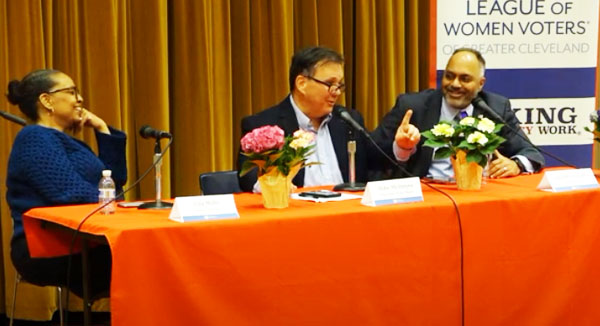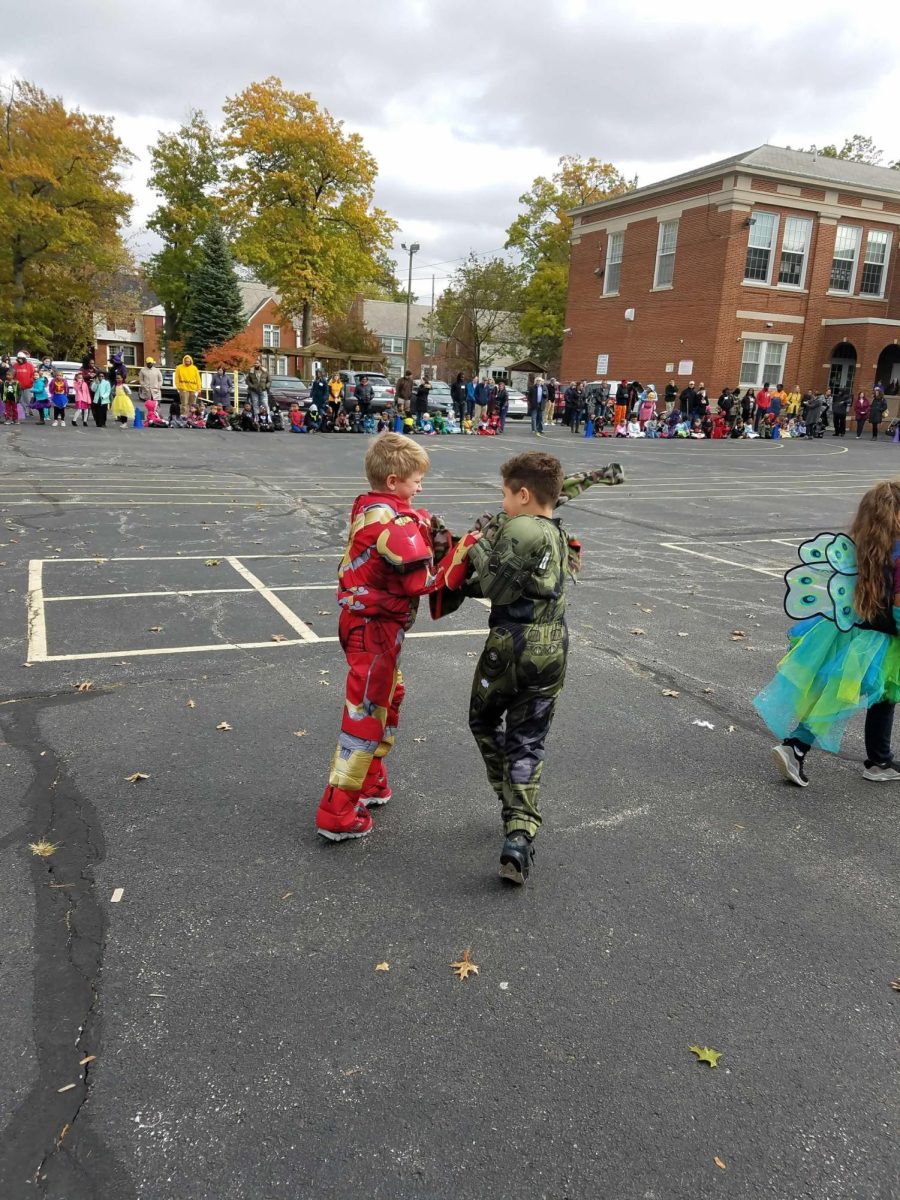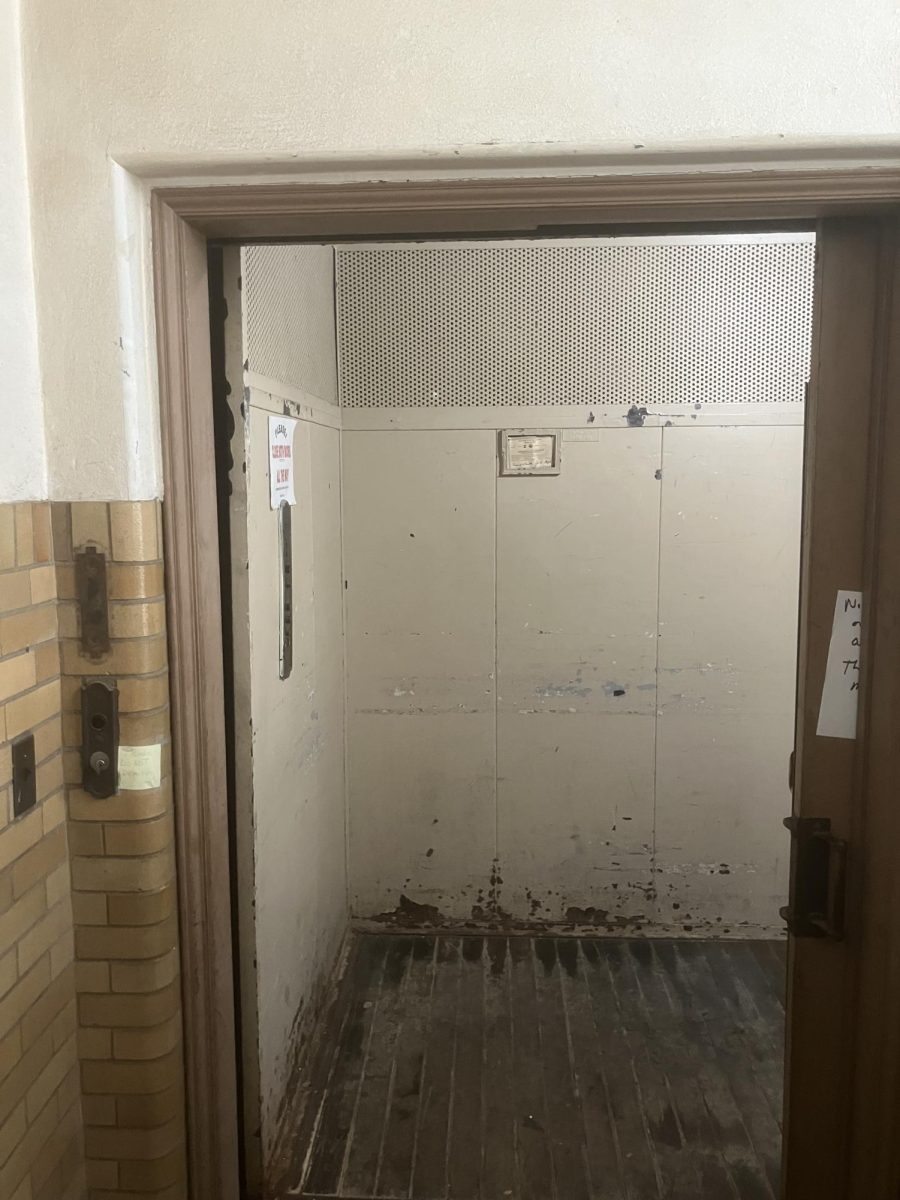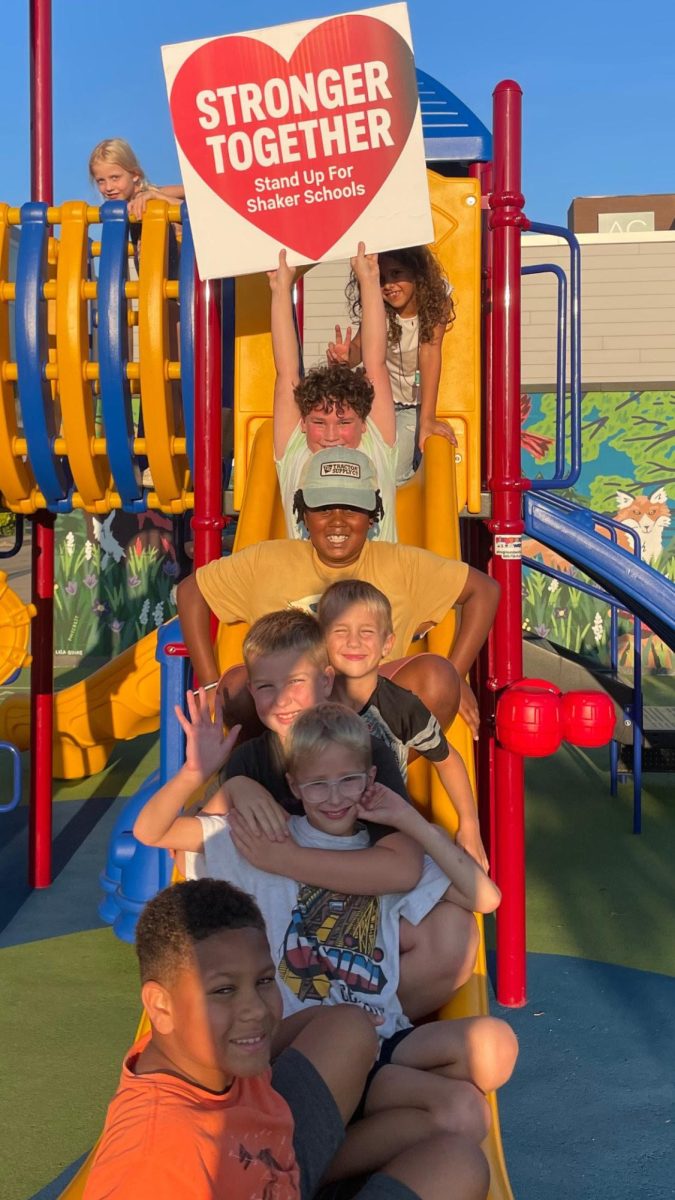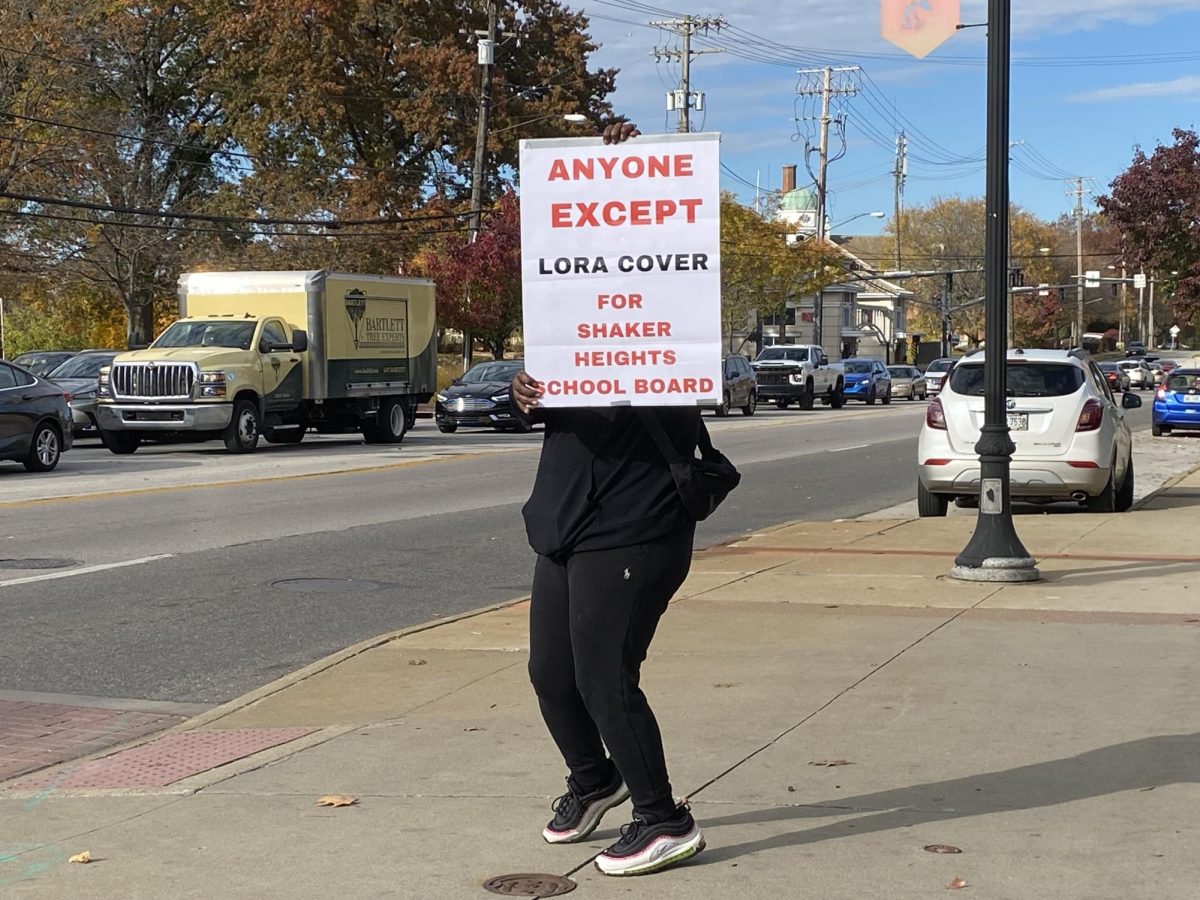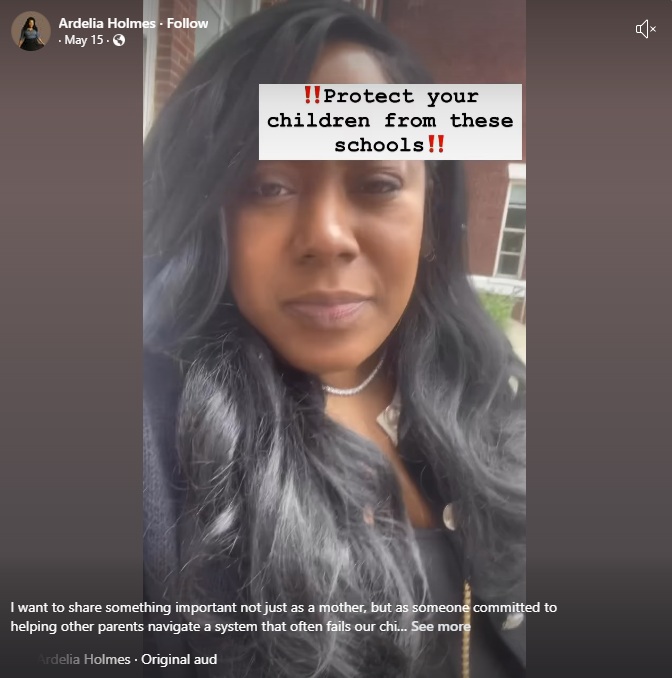Media and law professionals spoke about fostering trust in and engagement with news at a League of Women Voters forum April 16 in the high school’s small auditorium.
The League of Women Voters is a national organization that works to protect voting rights through education, legal advocacy and partnerships with other organizations. The Shaker Heights chapter is part of the Greater Cleveland League of Women Voters.
Panelists were Lila Mills, editor in chief of Signal Cleveland, a local non-profit news organization that is part of the Signal Ohio network of newspapers; Ideastream’s Executive Editor Mike McIntyre, representing Northeast Ohio’s public radio and television service, which operates WKSU, a National Public Radio station owned by Kent State University; and civil-rights attorney Subodh Chandra, whose Chandra Law Firm LLC has prevailed in First-Amendment cases, has served as Cleveland’s law director and as a federal prosecutor. He has successfully sued government agencies for First-Amendment retaliation.
The forum began with questions written by the League of Women Voters. Panelists also answered some audience questions. Older adults comprised most of the forum audience.
McIntyre said that young people don’t use social media to engage with news. “We’re all talking about how we’re gonna deliver news via social media. But they’re not looking for news on social media. They’re looking for some crazy video or some other thing,” he said.
He said that reaching younger audiences is difficult. “My worry is, how are we gonna keep these people in the loop and what is it we’re gonna do? And it can’t be that we’re all gonna do our news as, like, a TikTok reel,” McIntyre said. “We can’t be in all the places young people are. We kinda need them to come to the realization that they need to have news in their lives, and that’s an education issue,” he said.
Ideastream has an Education Department that produces NewsDepth, a program designed for fourth- through sixth-grade students. Ideastream also uses Instagram to reach young people. Mills said that Signal Cleveland is experimenting with social media, too.
Chandra said that his triplet sons, who are 21 years old, have a similar relationship with the news. “I agree with Mike’s observation that they’re somewhat informed about what’s going on in the world, but they’re not consuming it through the news media,” Chandra said.
McIntyre said that people who distrust national news may trust local news. “We’re more concerned about what’s happening on the ground here. We are covering those issues and people are seeing it, they know we’re local, they know we’re real people, we’re trusted,” he said.
Mills said that gaining trust is challenging for Signal Cleveland because it is a newer organization. “Because we are new and because we started with zero reputation in Cleveland, we are trying to spread the word, so we do want more and more people to know we exist and to share the information about who we are,” Mills said
“We want folks who are already connected to media who are already engaged with Ideastream or other media in town to know we’re here, too,” Mills said. We also want to reach folks who have disengaged from media probably decades ago, and figure out how to bring them back in and how to get them to trust what we’re giving,” she said.
Mills said that reporters at Signal Cleveland engage with citizens by attending community events and talking with residents and by joining forces with known groups. “Sometimes you build trust by partnering with a trusted outside organization that isn’t a media organization and working together to do something in the community,” she said.
Mills said that Signal Cleveland is unique because of the Cleveland Documenters program. The Documenters Network is an organization that pays citizens to attend public meetings and take notes, live tweet, or record audio or video. “All different types of people find joy in going to public meetings and taking notes,” Mills said.
“I also think there’s something about building trust with media that has to do with teaching these journalistic skills to other folks,” Mills said. “We’re not asking them to write stories, we’re not asking them to question officials. It’s somewhere between a meeting minute and kind of, you know, what you might tell your mom,” she said.
McIntyre said that Ideastream involves citizens in journalism through its Engaged Journalism Team, which partners with individuals to create four-minute podcasts about their lives. “Giving them some of those skills and seeing how it’s done and then putting their product on the air, we helped build trust, not just among them, but among anyone that listened to it,” he said.
McIntyre said that Ideastream reaches broader audiences by remaining politically neutral.
Mills said that Signal Cleveland does not publish opinion pieces. “We’re a nonprofit. We cannot. But I also think that one of the other things we are is nonpartisan, and so our goal is to spread across the state. Eventually we wanna get into rural communities and do the same thing we’ve done in Cleveland and Akron,” she said.
Chandra said that opinion pieces are important in some news organizations. “In a measured and judicious way, there is a role for opinion in these institutions, but it may vary by institution. I can certainly understand why Signal Cleveland would say, ‘We’re not gonna go that route,’” Chandra said.
Chandra said that he was concerned about the Trump administration’s impact on citizens’ access to unbiased news. He characterized Trump’s actions as instances of First-Amendment retaliation.
He said, “To think that our public will thereby, from all of this, face a distortion of reality as it actually exists, and that you’ll then have a less-informed electorate making decisions about our future governments, that is just one of the most frightening outcomes of all.”

